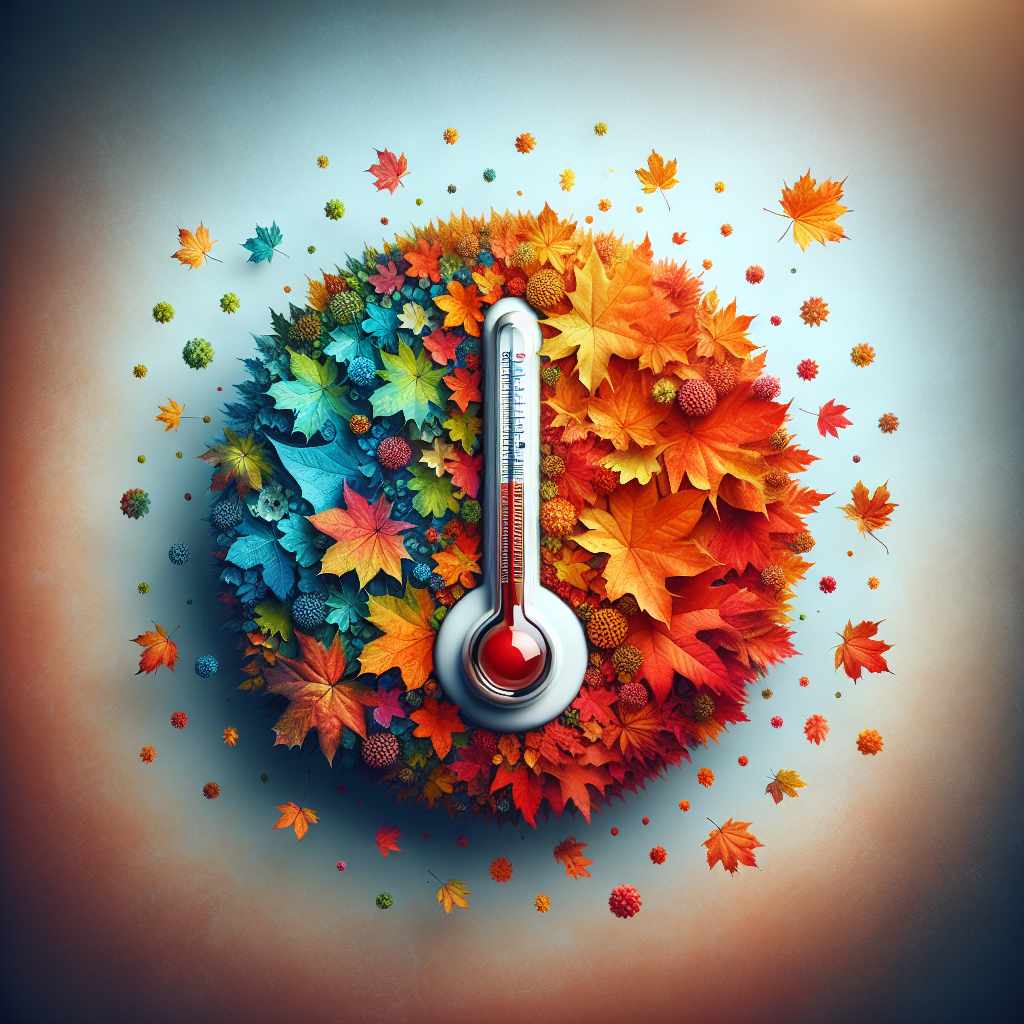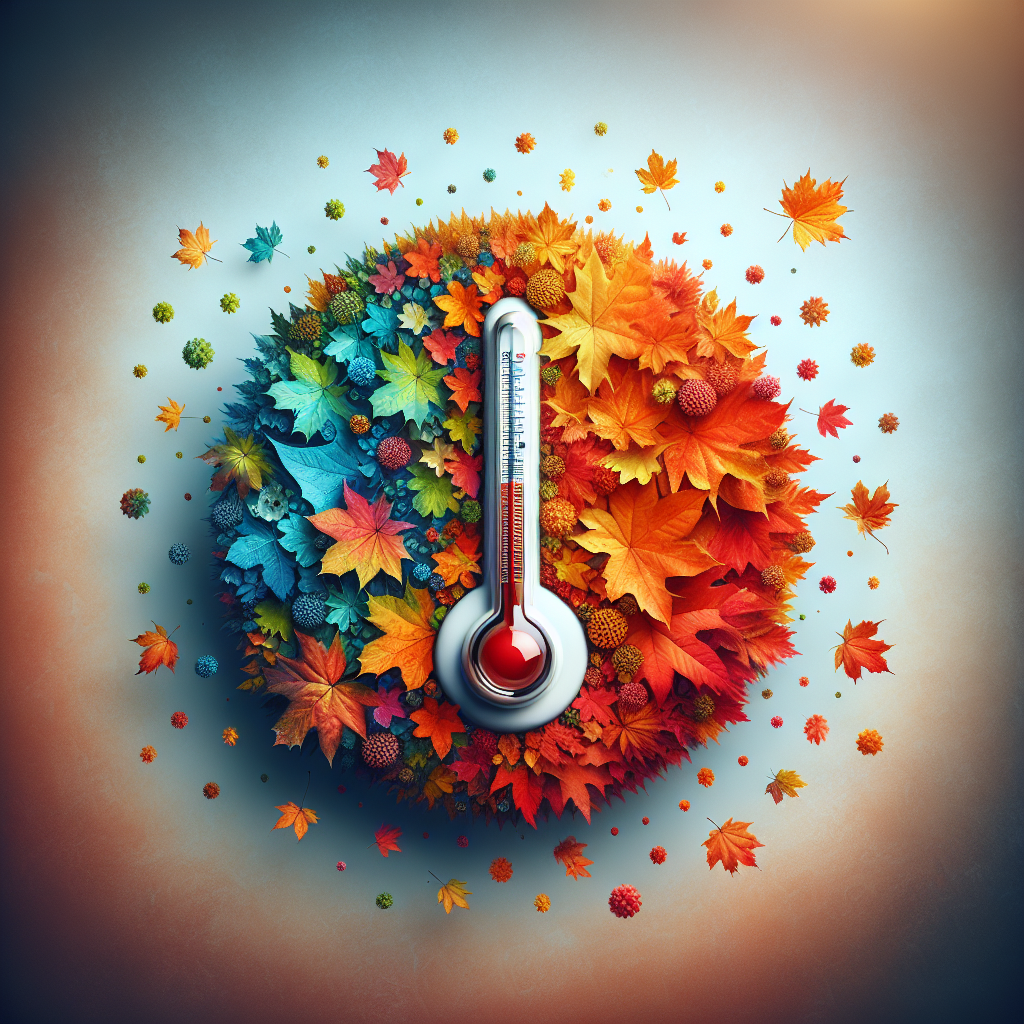Have you ever wondered how the changing seasons impact your home’s plumbing and HVAC systems? From freezing temperatures in winter to scorching heat in summer, these seasonal shifts can have a significant effect on the functionality and efficiency of both systems. Understanding how these changes influence your plumbing and HVAC can help you prepare and prevent any potential issues that may arise. In this article, we will explore the various ways in which seasonal changes can impact your home’s plumbing and HVAC systems, providing you with valuable insights to ensure their optimal performance all year round.
Impact of Seasonal Changes on Plumbing Systems
Effects of Cold Weather on Pipes
During the cold winter months, the plummeting temperatures can have a significant impact on your plumbing system. The most common effect of cold weather on pipes is freezing, which can lead to them bursting. When water freezes inside the pipes, it expands, putting immense pressure on the pipe walls. As a result, the pipes can crack or burst, causing water leaks and extensive damage to your property.
Preventing Pipe Freezing
To prevent pipe freezing during cold weather, there are a few essential steps you can take. Firstly, insulating your pipes is an effective approach. This can be done using foam sleeves or heat tape. Ensure that all exposed pipes, especially those found in unheated areas like basements or crawl spaces, are properly insulated. Secondly, during extremely cold weather, it is advisable to allow a small trickle of water to flow through your faucets. This helps to keep the water moving and prevents it from freezing within the pipes.
Effects of Hot Weather on Plumbing
While we often associate plumbing issues with cold weather, hot weather can also wreak havoc on your plumbing system. High temperatures, particularly during heatwaves, can lead to increased strain on your pipes. This can result in a higher risk of leaks, as well as causing pipes to expand and potentially crack.
Water Pressure and Temperature Control
Maintaining the right water pressure and controlling temperature are crucial aspects of plumbing system maintenance. Hot weather can lead to water pressure fluctuations, as demand increases due to cooling needs. It is important to regularly monitor your water pressure and adjust it accordingly to prevent strain on your pipes. Additionally, ensuring that you have proper temperature control devices, such as thermostatic mixing valves, can help prevent scalding or damage to your plumbing system caused by excessive heat.
Preventing Damage from Excessive Heat
To protect your plumbing system from the damaging effects of excessive heat, there are a few precautionary measures you can take. First, avoid leaving exposed pipes or hoses under direct sunlight for prolonged periods. This can cause them to overheat and potentially burst. Second, consider insulating any exposed pipes or outdoor faucets to protect them from the heat. Lastly, be mindful of excessive water usage during hot weather, as this can put additional strain on your plumbing system.
Water Conservation during Droughts
In regions experiencing drought conditions, water conservation becomes paramount. Conservation efforts not only contribute to the environment but can also help preserve the health of your plumbing system. During droughts, it is essential to minimize unnecessary water usage and practice efficient water management. This includes repairing any leaks promptly, installing water-saving fixtures, such as low-flow toilets and showerheads, and incorporating responsible water usage habits into your daily routine.
Spring and Fall Maintenance
Spring and fall are ideal times to perform regular maintenance on your plumbing system. During spring, ensure that any pipes that may have been exposed or damaged during the winter are inspected and repaired. It is also recommended to check your irrigation system and make any necessary adjustments or repairs. In the fall, as temperatures begin to drop, take the necessary steps to winterize your plumbing system. This includes draining and insulating outdoor faucets, disconnecting hoses, and preparing pipes in unheated areas for freezing temperatures.

Impact of Seasonal Changes on HVAC Systems
Effects of Cold Weather on HVAC
Cold weather can have a significant impact on your HVAC system, particularly the heating component. Lower temperatures increase the demand for heating, which puts a strain on the system. It can lead to reduced efficiency, increased energy consumption, and potential breakdowns if the system is not properly maintained.
Importance of Proper Heating
Proper heating is vital during cold weather to maintain a comfortable indoor environment. It helps to prevent issues such as frozen pipes, mold growth, and discomfort. Regularly inspecting and servicing your heating system ensures it operates efficiently, providing optimal warmth and comfort while minimizing energy waste.
Fluctuations in Energy Consumption
During colder seasons, HVAC systems experience fluctuations in energy consumption. As the demand for heating increases, so does energy usage. It is crucial to be mindful of energy consumption and implement energy-saving practices, such as using programmable thermostats, properly insulating your home, and sealing any air leaks. These measures not only reduce energy costs but also contribute to the overall longevity of your HVAC system.
Preventing Heat Loss
Heat loss is a common issue during cold weather, as warm air tends to escape while cold air infiltrates your home. By properly insulating your home, sealing any cracks or gaps in doors and windows, and ensuring your ductwork is properly insulated, you can significantly reduce heat loss. This not only improves the efficiency of your HVAC system but also helps to maintain a consistent indoor temperature.
Effects of Hot Weather on HVAC
Just as cold weather can impact your HVAC system, hot weather brings its own set of challenges. The demand for cooling increases during heatwaves, which can strain your system and lead to decreased efficiency, increased energy consumption, and potential malfunctions if not properly addressed.
Importance of Efficient Cooling
Efficient cooling is crucial during hot weather to maintain a comfortable indoor environment and prevent issues such as heat-related illnesses and damage to electronics. Regular maintenance and inspection of your cooling system ensure that it operates at optimal efficiency, providing the desired level of cooling while minimizing energy waste.
Excessive Energy Usage during Heatwaves
Heatwaves often result in excessive energy usage as air conditioners are running continuously to combat the rising temperatures. To mitigate this, consider implementing energy-saving practices such as using ceiling fans, closing curtains or blinds during the hottest parts of the day, and setting your thermostat at a reasonable temperature. Additionally, regular maintenance and cleaning of your air conditioning unit can improve its efficiency and reduce energy consumption.
Preventing Overheating and Air Conditioning Issues
To prevent overheating and potential air conditioning issues during hot weather, it is essential to take proactive measures. This includes providing proper shade for your outdoor unit to prevent overheating, regularly changing air filters to ensure proper airflow, and scheduling routine maintenance to identify and address any potential problems before they escalate.
Spring and Fall HVAC Maintenance
Spring and fall are opportune times to conduct maintenance on your HVAC system. During spring, it is crucial to have your air conditioning unit serviced to ensure it is operating optimally for the upcoming hot weather. This includes cleaning or replacing air filters, checking refrigerant levels, and inspecting the overall condition of the unit. In the fall, inspect and prepare your heating system for the colder months, including cleaning or replacing filters, checking thermostat settings, and ensuring proper airflow throughout your home.
By being aware of the impact seasonal changes can have on your plumbing and HVAC systems, you can take the necessary steps to maintain their efficiency, prevent damage, and ensure a comfortable and functional home environment throughout the year. Regular maintenance, timely repairs, and implementing energy-saving practices will not only prolong the lifespan of your systems but also save you money in the long run.

